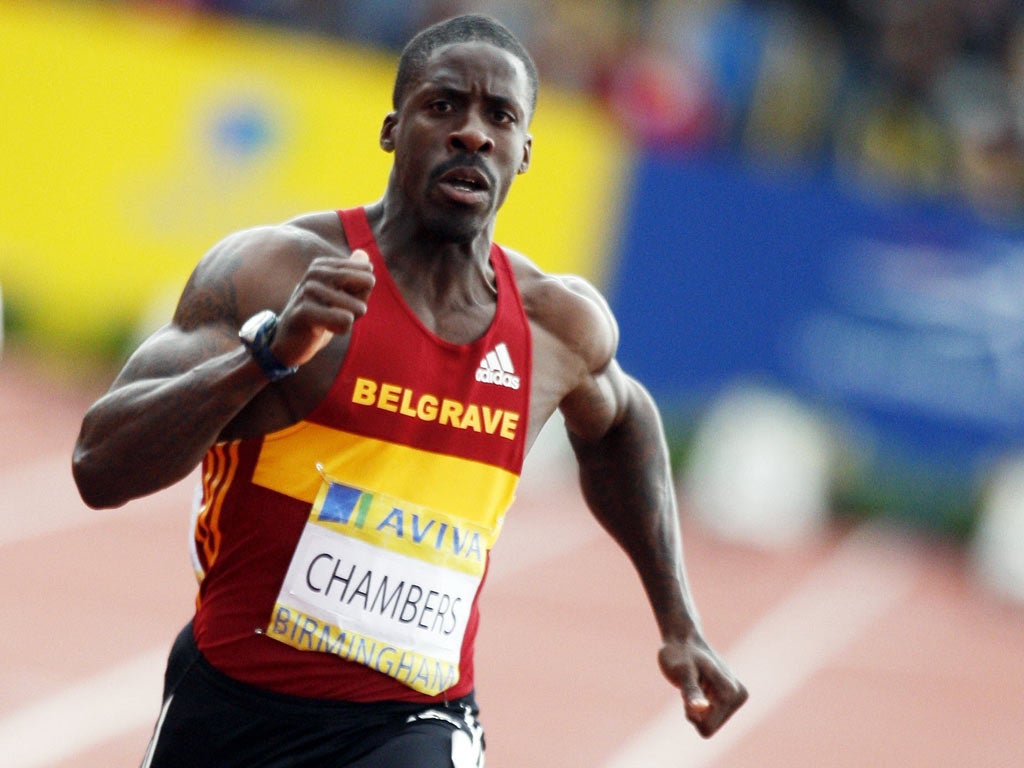Drug bans row could harm 2012 Olympics, claims anti-doping chief

Your support helps us to tell the story
From reproductive rights to climate change to Big Tech, The Independent is on the ground when the story is developing. Whether it's investigating the financials of Elon Musk's pro-Trump PAC or producing our latest documentary, 'The A Word', which shines a light on the American women fighting for reproductive rights, we know how important it is to parse out the facts from the messaging.
At such a critical moment in US history, we need reporters on the ground. Your donation allows us to keep sending journalists to speak to both sides of the story.
The Independent is trusted by Americans across the entire political spectrum. And unlike many other quality news outlets, we choose not to lock Americans out of our reporting and analysis with paywalls. We believe quality journalism should be available to everyone, paid for by those who can afford it.
Your support makes all the difference.Andy Parkinson, chief executive of UK Anti-Doping, has given his backing to the probable attempt by the British Olympic Association (BOA) to settle its increasingly bitter dispute with the world anti-doping authority at the Court of Arbitration for Sport (CAS) in Lausanne, but stressed the need for a speedy settlement with the London Olympics eight months away.
On Sunday night, Wada's board declared the BOA's controversial by-law that bans athletes guilty of doping offences for life was "non-compliant" with its global code. The BOA is now preparing to take its case to CAS and Parkinson believes that is the best way to resolve once and for all what is threatening to become an embarrassing issue for the Olympic host nation.
Parkinson said yesterday: "We certainly agree with the BOA that CAS is the most appropriate place to have this matter resolved. If we can get it done as quickly as possible then we have got some clarity for everyone involved going into 2012. What we need is for CAS to make a definitive ruling on it then we can all progress forward."
The row has escalated since CAS found in favour of the US athlete LeShawn Merritt last month and overturned the International Olympic Committee's rule 45 that meant athletes serving a ban would also automatically miss one Olympics. The BOA is widely expected to lose any appeal, thus clearing the way for the likes of Dwain Chambers and David Millar to compete in London next year.
Yesterday David Howman, the director general of Wada, rejected a scattergun attack on his organisation by Colin Moynihan, describing the chairman of the British Olympic Association as wrong and misguided and suggesting that Moynihan should be ignored.
Howman was responding to a speech Moynihan gave in Lausanne last week in which he described the agency as "toothless" and in need of fundamental reform as it was failing to catch drug cheats. Howman said that Moynihan "was just wrong to say Wada is toothless. We are the ones with the teeth – look at the facts. We have to just ignore him." Howman, speaking from Montreal, added: "We were disappointed with Lord Moynihan's speech. He was a little bit misguided and the speech did not adhere to the factual situation.
Parkinson said: "We've supported Wada through our short life [UKAD was formed in 2009] every step of the way. It has made a huge difference and had a huge impact on the world of anti-doping."
Howman said the decision over non-compliance by Wada was based only on the CAS decision last month on Merritt, which revolved around the IOC Games ban being an extra sanction on top of any doping sentence. The BOA argues it is an eligibility issue. Howman said: "The BOA rule is an extra sanction. By going beyond that a signatory is not conforming. Simple as that."
Like Parkinson, Howman emphasised the need for a swift resolution, and he also does not believe it will take CAS long to reach a decision and lift the "cloud hanging around". Technically, British athletes could be banned from the Games for the BOA's "non-compliance" but the IOC said yesterday that UKAD's compliance means that remains improbable.
Howman also said yesterday that Wada would look again at the issue of life-time bans for doping offences when the anti-doping code is reviewed in the wake of the Games. But he suggested any such ban would be unlikely to survive a legal challenge.
British shot-putter Carl Fletcher has been given a nine-month prison sentence at Liverpool Crown Court for supplying anabolic steroids. He was also banned by UKAD for four years.
Join our commenting forum
Join thought-provoking conversations, follow other Independent readers and see their replies
Comments